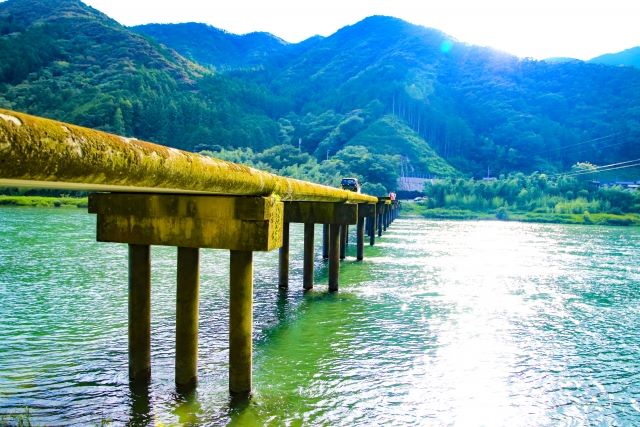Introduction to Instagram-Worthy Photos in Kochi Prefecture
Kochi Prefecture has numerous tourist destinations rich in history and natural charm. Major attractions include Kochi Castle, Katsurahama with its connections to Ryoma Sakamoto, Ryugado Cave, one of Japan’s most famous limestone caves, and the Niyodo River, known for its “Niyodo Blue.”
Kochi Castle
Kochi Castle was initially constructed by Kazutoyo Yamauchi in 1601 and was nearly completed by 1611. Although most of it was destroyed in a fire in 1727, it was rebuilt in 1753. It still retains its beautiful appearance and is one of the 12 remaining wooden castle keeps in Japan, having survived numerous disasters and historical changes. Statues of Kazutoyo’s wife, Chiyo, and Taisuke Itagaki can be found in the park.
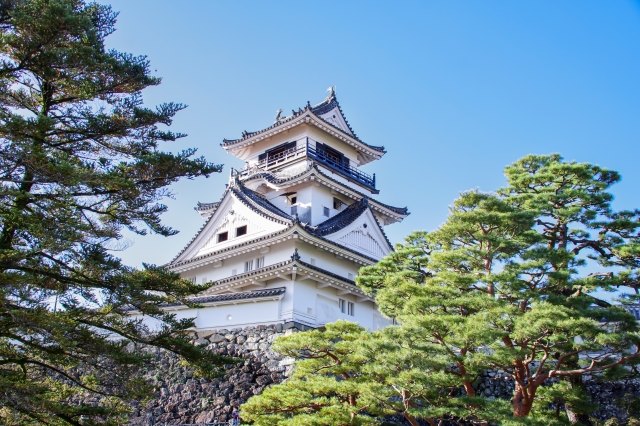
Instagram Worthiness:★★★★★
Photography Opportunity: All seasons
Location Information: ▶Map, Hours, Routes
Transportation Information: 4-minute walk from Kencho-mae Station
Katsurahama
Katsurahama is a scenic spot located between Ryuto Cape and Ryuoh Cape, known for its white sandy beach and blue pines. The area is developed as Katsurahama Park, featuring a statue of Ryoma Sakamoto and an aquarium. The statue of Ryoma Sakamoto, dressed in traditional attire and boots, gazing at the Pacific Ocean, symbolizes the bravery of the restoration heroes.
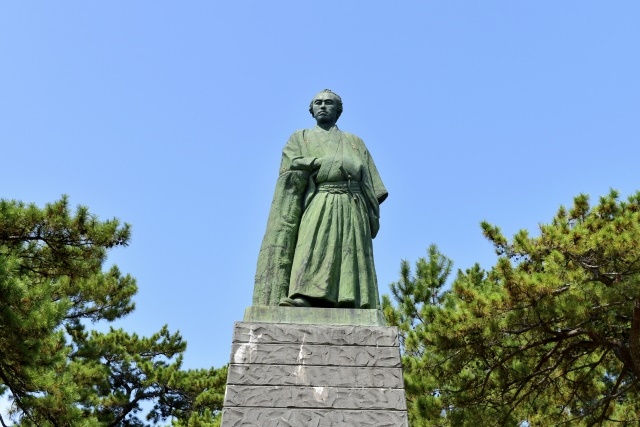
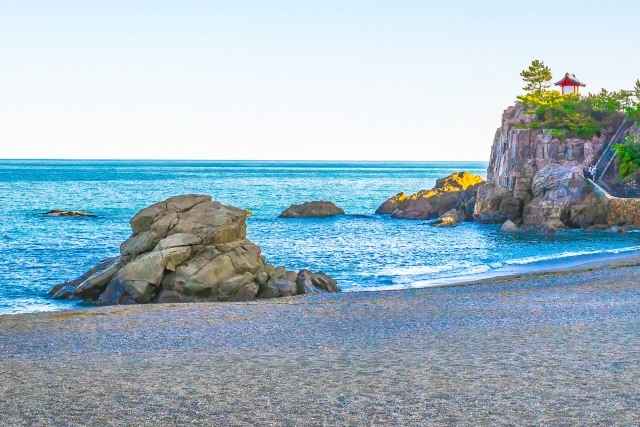
Instagram Worthiness:★★★★★
Photography Opportunity: All seasons
Location Information: ▶Map, Hours, Routes
Transportation Information: 32-minute bus ride from Kochi Station
Harimaya Bridge
During the early Edo period, a wealthy merchant living nearby built Harimaya Bridge for crossing the Horikawa River. The bridge has been rebuilt several times, and the river has been filled in, but it is now recreated as Harimaya Bridge Park. Here you can see the old bridge’s appearance and monuments. The current bridge is made of granite, and nearby, the old red drum bridge has been recreated.
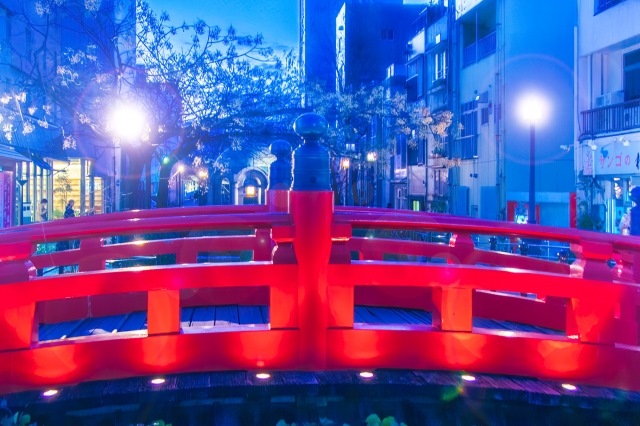
Instagram Worthiness:★★★★★
Photography Opportunity: All seasons
Location Information: ▶Map, Hours, Routes
Transportation Information: 2-minute walk from Harimaya-bashi Station
Niyodo River
Niyodo River is known for its beautiful blue water, called “Niyodo Blue.” The water quality is rated as the best in Japan, with famous spots like Nikobuchi, Suishobuchi, and Nakatsu Gorge. Nikobuchi, located deep in the mountains, is a hidden gem with a waterfall basin. This area is surrounded by trees, with particularly beautiful light shining through around midday.
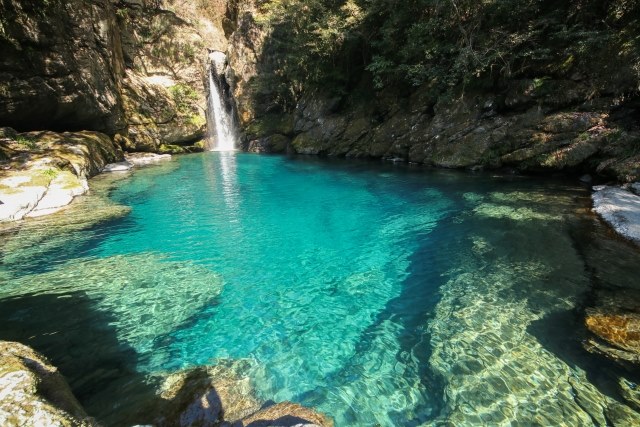
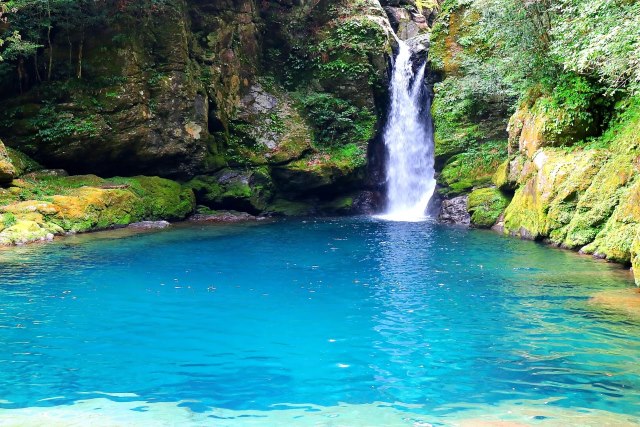
Instagram Worthiness:★★★★★
Photography Opportunity: All seasons
Location Information: ▶Map, Hours, Routes
Transportation Information: 10-minute bus ride from Sakawa Station
Ryugado Cave
Ryugado Cave in Kami City, Kochi Prefecture, formed over approximately 175 million years, is one of Japan’s most famous limestone caves, along with Ryusendo Cave in Iwate Prefecture and Akiyoshido Cave in Yamaguchi Prefecture. The cave, with a total length of 4km, has about 1km open to the public, showcasing beautiful natural formations like Amagoi-stone and Senmai-iwa. Additionally, it features historical sites like traces of the Jomon period cave dwellers and the God’s Jar.
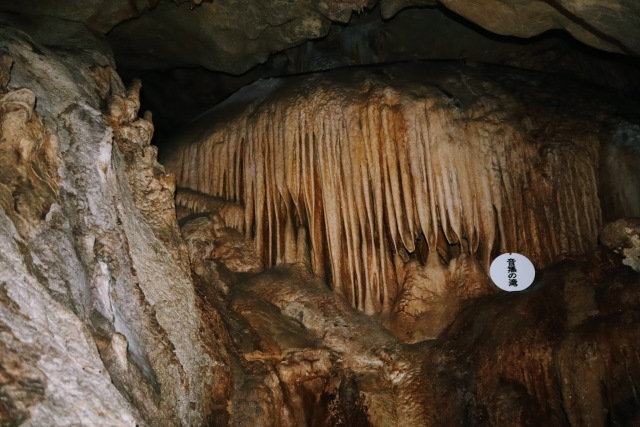
Instagram Worthiness:★★★★★
Photography Opportunity: All seasons
Location Information: ▶Map, Hours, Routes
Transportation Information: 21-minute bus ride from Tosa-Yamada Station
Yosakoi Festival
The Yosakoi Festival held in Kochi City begins with the eve festival on August 9, followed by the main festival on the 10th and 11th, and the national competition and closing ceremony on the 12th. The eve festival features about 4,000 fireworks. This festival started in 1954 by the Kochi Chamber of Commerce and Industry’s youth group, as a rival to Tokushima’s Awa Dance. During the festival, trucks equipped with sound systems run, followed by dancers performing the Yosakoi dance.
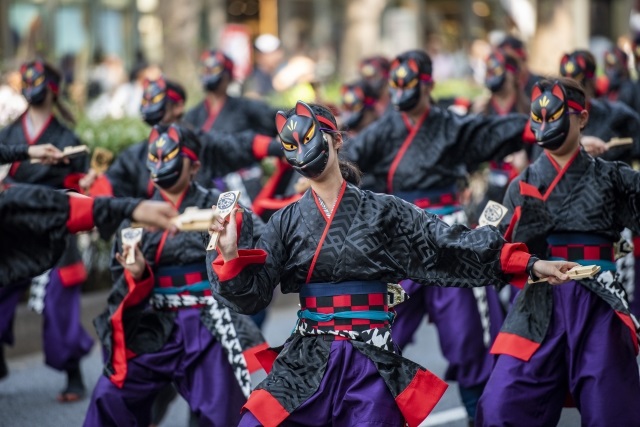
Instagram Worthiness:★★★★★
Photography Opportunity: 8/9~8/12
Location Information: ▶Map, Hours, Routes
Transportation Information: Central Kochi City
Monet’s Garden in Kitagawa Village
The only recreation in the world of the garden at Claude Monet’s house in Giverny, France, is located in Kochi. The garden, spread over about 30,000 square meters, features 100,000 flowers and trees, divided into three areas: Water Garden, Flower Garden, and Light Garden. You can experience the beautiful scenery Monet loved, filled with light and color.
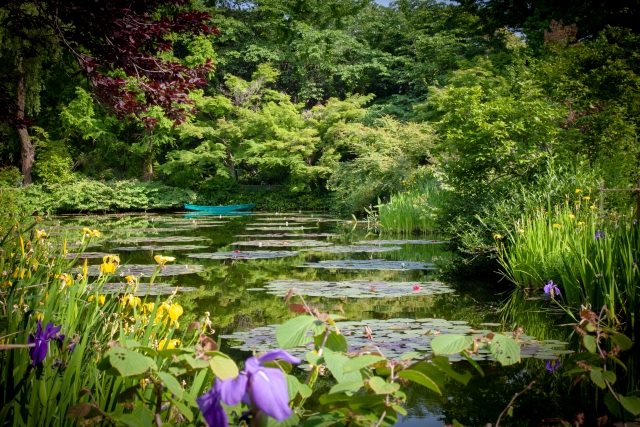
Instagram Worthiness:★★★★★
Photography Opportunity: All seasons
Location Information: ▶Map, Hours, Routes
Transportation Information: 10-minute bus ride from Nahari Station
Shimanto River
The Shimanto River is the longest river in Shikoku, flowing through western Kochi Prefecture. It has no dams along its course, earning it the title “Japan’s Last Clear Stream,” and is considered one of Japan’s three clear streams alongside the Kakita River and the Nagara River. It has been selected as one of the top 100 famous waters and Japan’s top 100 secret places. You can enjoy various activities on the Shimanto River, from canoeing to leisurely sightseeing cruises.
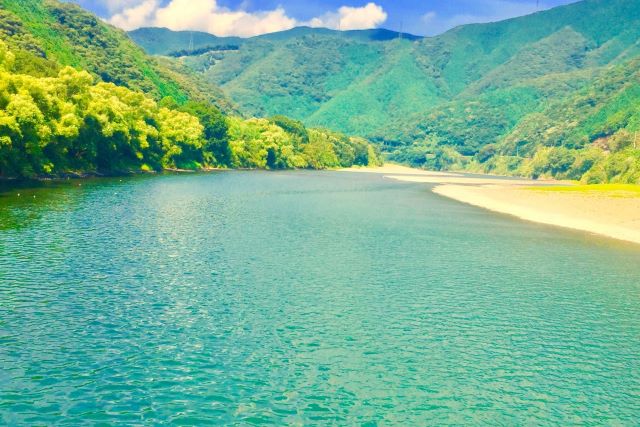
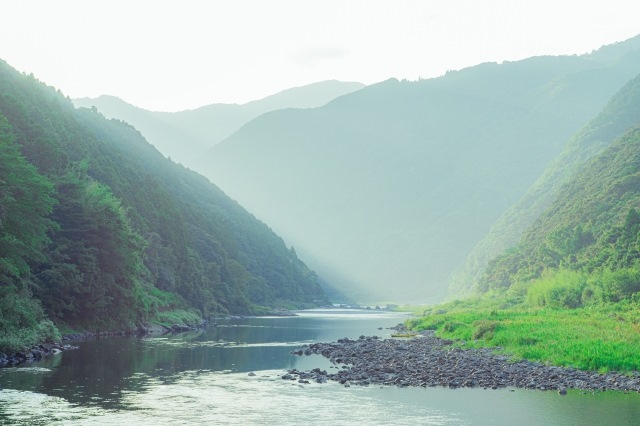
Instagram Worthiness:★★★★★
Photography Opportunity: All seasons
Location Information: ▶Map, Hours, Routes
Transportation Information: 32-minute bus ride from Kubokawa Station
Red Iron Bridge
The Shimanto River Bridge, affectionately known as the Red Iron Bridge, is a symbol for the local residents. The bridge’s history dates back to 1926, when frequent flooding of the Shimanto River and only ferry boats as a means of crossing led to its construction after a ferry capsizing incident.
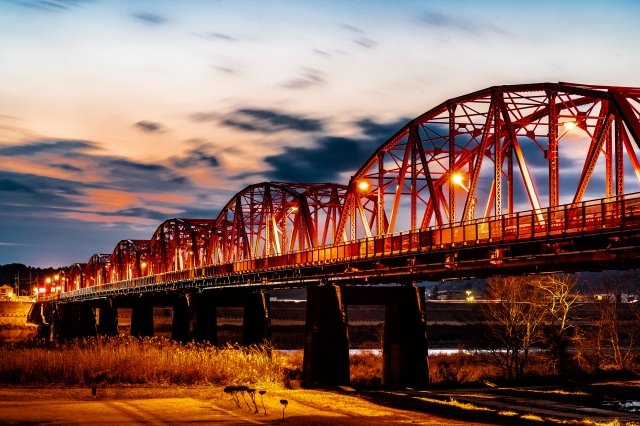
Instagram Worthiness:★★★★★
Photography Opportunity: All seasons
Location Information: ▶Map, Hours, Routes
Transportation Information: 5-minute bus ride from Nakamura Station
Chinkabashi (Submersible Bridges)
The Shimanto River, one of Japan’s three clear streams with a total length of about 196km, is crossed by many submersible bridges. These bridges are designed without railings so that they are not obstructed by driftwood or debris during floods. This structure prevents the bridges from being destroyed or causing floods. A journey exploring Chinkabashi, such as Sada Chinkabashi and Katsuma Chinkabashi, is recommended. These bridges are also used as filming locations. After a 15-minute bus ride from Nakamura Station, getting off at Yasunami offers a nostalgic atmosphere at “Yasunami Waterwheel Village,” where waterwheels were built during the Edo period to irrigate rice fields. In late May, hydrangeas bloom along the waterway, creating a beautiful scene with the waterwheels.
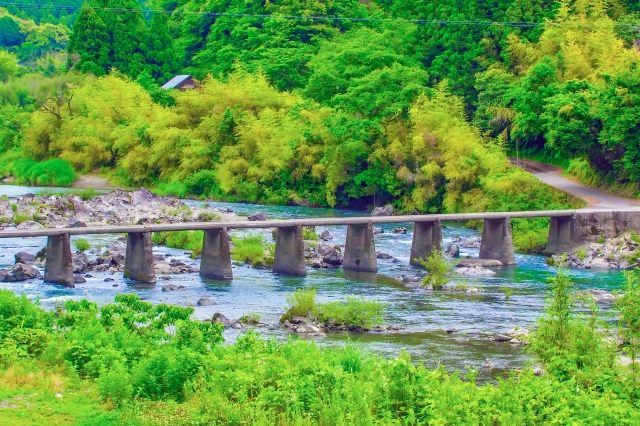
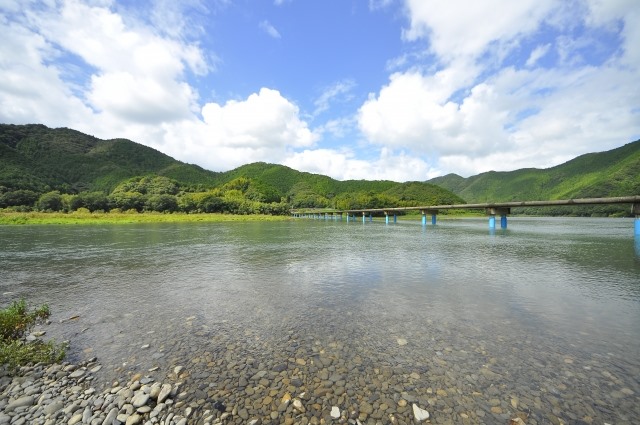
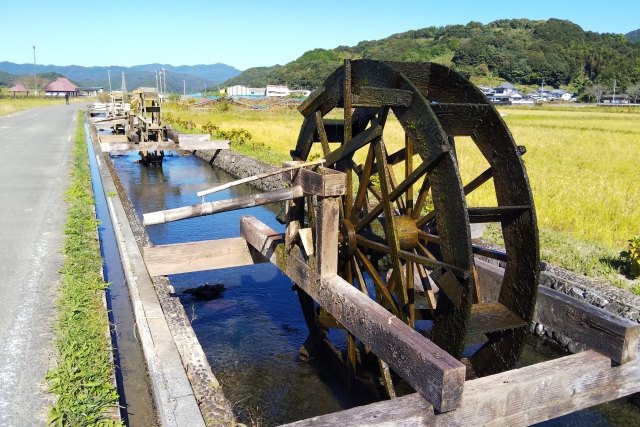
Instagram Worthiness:★★★★★
Photography Opportunity: All seasons
Location Information: ▶Map, Hours, Routes
Transportation Information: 21-minute bus ride from Nakamura Station
Shirasu Unagi Fishing
Shirasu Unagi fishing in the Shimanto River is known for capturing rare natural eels and the beautiful sight it creates. The colorful lights reflecting on the dark river surface create a fantastic scene. Because the young eels are so valuable, called “white diamonds,” this fishing requires the prefectural governor’s permission.
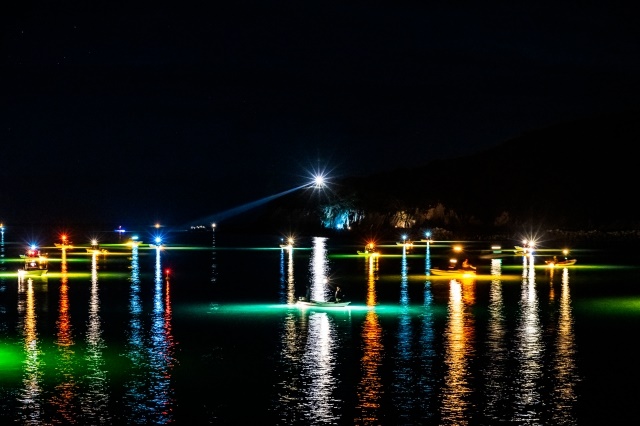
Instagram Worthiness:★★★★★
Photography Opportunity: All seasons
Location Information: ▶Map, Hours, Routes
Transportation Information: Near the mouth of the Shimanto River
